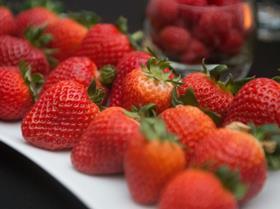
Science and business strategies for developing the health-promoting benefits of berries was a key theme at a recent workshop held between representatives of Plant & Food Research New Zealand and the North Carolina Research Campus (NCRC).
The workshop, which took place on the Te Āwhina Marae in Motueka, is the latest chapter in ongoing collaborations between the parties, which included a similar workshop in the US last year.
According to Plant & Food, the overarching objective is the 'exploration of joint research opportunities for understanding and scientifically validating the intrinsic health outcomes from berry fruit'.
By sharing research capabilities and technology, and aligning research interests, the organisations aim to enhance scientific outcomes and hasten the delivery of new findings which can be applied as commercial opportunities for the berry industry. The collaboration specifically aims at developing a robust dossier of scientifically-validated health claims for berries, thereby positioning them as a high-nutrition ‘go to’ food.
“The workshop galvanised our strategic thinking regarding the science and business direction of our research relationship with the NCRC, and the contribution we can make as partners to the industry itself,” said Plant & Food research operations manager for food innovation, TC Chadderton. “The berry fruit industry in New Zealand is valued at over NZ$100m, but there is much more value-add potential there with the right strategic approach, particularly in the health and wellness, and functional food space.
“From this workshop we’ve identified four existing research programmes and two new research areas where we could add value by working with the NCRC,' Chadderton continued. 'These include work in cellular function and immunity, antioxidants and protein-binding, plant genomics, and skin health. We’ve also set ourselves targets around grant funding and the publishing of research papers.”
The organisations from the NCRC involved in the research collaboration included North Carolina State University, University of North Carolina Chapel Hill, Appalachian State University and the Dole Nutrition Research Institute.
Also attending the two-day workshop were members of eight New Zealand companies and industry organisations who were presented to by Plant & Food Research and NCRC scientists with updates on current research in areas such as berries and exercise, metabolic function, immune function, and the overall impact of berry consumption on human health.
The group also heard from Dr Roger Harker, Plant & Food Research’s science group leader for consumer and product insights, on the differences in consumer markets regarding fruit consumption, and perceptions around fruit and health outcomes.
The next workshop is planned for early 2017, with the parties hoping to hold additional meetings at least once a year.



